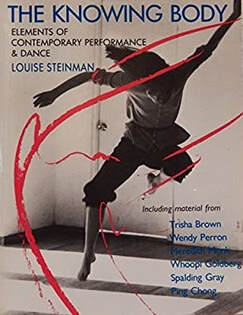Knowledge
 The words know and knowledge are not just about the mind. The etymology tells us that these words are about both body and mind, thought and feeling.
The words know and knowledge are not just about the mind. The etymology tells us that these words are about both body and mind, thought and feeling.The words know and knowledge have their origins in the Proto-Indo-European (PIE) root gno (to know). The everyday word ‘know’ came to English from PIE gno via Proto-Germanic knew and Old English cnawen (to perceive a thing to be identical with another; to be able to distinguish; to know how to do something; and to perceive or understand something as a fact or truth (which is not the same as belief which comes from PIE leubh = to care, desire, love—etymologically speaking, knowledge is what we ‘know’ whereas belief is what we ‘love’).
Many words come to English from PIE gno including agnostic, diagnosis, gnome, gnostic, ignoble, ignore, ignorant, prognosis, recognize, and so on. Also, PIE gno is the source of the more intellectual or literary words related to ‘know’ (e.g., cognition, cognitive, cognizant, and so on).
By 1200, the word know meant to experience or to live through. A person ‘knew’ something with all their senses. As well, at that time, in English and other modern languages, ‘know’ also meant to have sexual intercourse, as seen, for example, in early English translations of the Bible (Genesis 4.1: “Now Adam knew Eve his wife, and she conceived…”).
Similarly, the word knowledge comes to English in the early 12th century as cnawlece (acknowledgement of a superior, honor, worship). By the late 14th century, knowledge meant a capacity for knowing, understanding, familiarity; a fact or condition of knowing, awareness of a fact; news, notice, information, learning; and an organized body of fact or teachings. By the beginning of the 15th century, the word knowledge, like the word know, also meant to have sexual intercourse with someone, in the sense of to have ‘carnal knowledge’ of someone.
However, during the years of the Renaissance, Reformation, and Enlightenment (~15th – 18th centuries), the word knowledge became more and more associated with the workings of the brain and mind. Even so, even today we talk of people who ‘think’ with their genitals!
Nevertheless, today when we ask the question of ‘how’ we know, one answer is that knowing is a function of our bodily senses and our perceptions in conjunction with our brain. Knowledge is not just in our head, it is in our body. Our bodies can ‘know’ things—like swinging a tennis racket or dancing or sanding a piece of pine to perfection when crafting a cabinet.
Reference: Online Etymological Dictionary, https://www.etymonline.com/
Published on August 25, 2020 21:45
No comments have been added yet.



